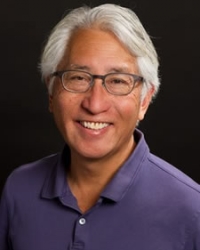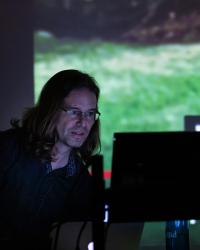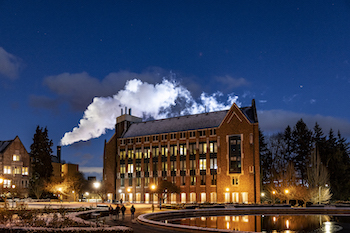Professor Flores Ruíz comes to us from the University of California at Berkeley, where she earned her PhD in film and media studies.
Her current book project explores the visual technologies (from cartography to biometrics) that have been used to draw and redraw the US-Mexican border, how they work to maintain settler colonial power relations, and how Latinx artists and activities have enacted visual forms of resistance.
Professor Flores Ruíz has won several prestigious awards, including a Mellon Mays Dissertation Fellowship and a research grant from the Social Sciences Research Council.
At UW, she offers courses in a wide range of areas including Latinx visual culture, media activities, Queer cinema, documentary and avant-garde cinemas, and various aspects of gender, race, and sexuality in media. This fall she will teach CMS 321 Oppositional Cinema/Media with particular focus on "Visions of Racial Reckoning and Justice."
More Stories

Faculty Profile: Professor Shawn Wong, English
Professor Shawn Wong was featured in Sound Bite, a podcast network from The Daily of the UW. You can listen to the "How Do I Get Your Job" segment featuring Professor Wong from autumn quarter 2020 here: Screenwriting with Shawn Wong (Americanese)

Faculty Profile: Professors Pimone Triplet & Charles LaPorte, English
Pimone Triplett and Charles LaPorte discuss how the poetic form from Terrance Hayes' "The Golden Shovel" grew out of deeper history of race and gender in America to help us better contextualize the famous Gwendolyn Brooks poem, "We Real Cool."

Faculty Profile: Prof. Stephen Groening, Cinema & Media Studies
You’re writing a book about television and philosophy. Where do they intersect?
The short answer is: “no television, no postmodern theory.” Television’s ability to instantaneously transmit images and sounds from distant places changed how we thought of reality and led to the rise of such concepts like simulation. Rather than rehearse debates about mass media and its influence, the book explores television as something that has ontological and epistemological implications that haven’t really been grappled with in the field.
